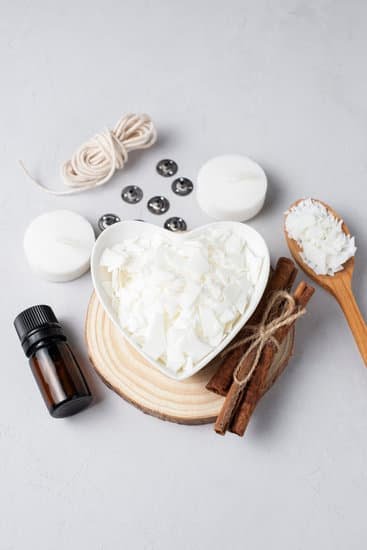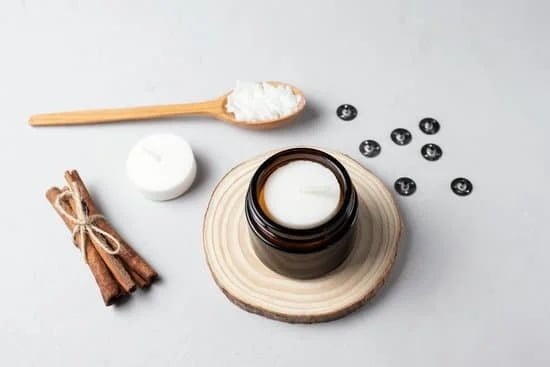Are you wondering what is the best oil for making scented candles? The type of oil used in candle making plays a crucial role in the overall quality and scent throw of the finished product.
Whether you opt for essential oils or fragrance oils, choosing the right oil is essential for creating high-quality, fragrant candles. In this article, we will delve into the significance of using top-quality oils in scented candle making and explore the differences between essential oils and fragrance oils.
When it comes to making scented candles, the choice of oil can greatly impact the outcome of your creation. The right oil not only ensures a pleasing and long-lasting scent throw but also contributes to the overall quality and performance of the candle. Understanding the role that oils play in candle making is essential for anyone looking to create their own fragrant candles at home.
In this comprehensive guide, we will discuss the pros and cons of essential oils versus fragrance oils, as well as provide a detailed breakdown of the best options for both types of oils. Additionally, we will offer tips on selecting the right oil for your specific candle-making needs and provide a step-by-step guide on how to incorporate oils into your candle-making process for optimal results.
Let’s dive into this insightful exploration of using high-quality oils in scented candle making.
The Significance of Choosing the Right Oil for Scented Candles
When it comes to making scented candles, the type of oil used plays a crucial role in determining the overall quality and scent throw of the candle. The significance of choosing the right oil cannot be overstated, as it directly impacts the fragrance intensity, burn time, and overall performance of the candle. Whether you opt for essential oils or fragrance oils, selecting the best oil for your specific candle-making needs is essential for achieving optimal results.
The Impact on Scent Throw
The choice of oil has a direct impact on the scent throw of a scented candle. Scent throw refers to the strength and reach of the fragrance when the candle is burning.
High-quality oils that are specifically designed for candle making offer superior scent throw, ensuring that the fragrance permeates throughout a room without being overpowering. On the other hand, using low-quality or inappropriate oils can result in poor scent throw, leaving you with a candle that does not effectively disperse its fragrance.
Quality and Performance
In addition to affecting scent throw, the type of oil used also influences the overall quality and performance of the scented candle. Quality oils produce clean-burning candles with consistent fragrances, minimal soot, and long-lasting burn times. They also contribute to a smooth and even melt pool, allowing for an enhanced sensory experience. Conversely, using subpar oils can lead to uneven burning, excessive smoking, and an inconsistent fragrance experience for those enjoying your candles.
Experienced candle makers understand that choosing the right oil is about more than just adding pleasant scents to their creations – it’s about creating a high-quality product that provides a delightful olfactory experience. Whether you prefer essential oils or fragrance oils for your scented candles, making an informed decision about which oils to use will ultimately determine how successful your homemade candles are.
Essential Oils vs Fragrance Oils
When it comes to making scented candles, one of the most important decisions you’ll need to make is whether to use essential oils or fragrance oils. Both options have their distinct advantages and disadvantages, so it’s crucial to understand the differences between the two before choosing which one to use in your candle-making process.
Essential Oils
One of the main benefits of using essential oils in scented candles is that they are derived from natural sources such as plants, flowers, and herbs. This means that they offer a more natural and pure scent compared to fragrance oils.
Essential oils also have therapeutic properties that can provide additional benefits when the candle is burned, such as promoting relaxation or boosting energy levels. However, it’s important to note that essential oils can be more expensive than fragrance oils due to the extraction process and the amount of raw materials needed.
Fragrance Oils
On the other hand, fragrance oils are synthetic oils that are specifically formulated to mimic certain scents. They are often less expensive than essential oils and come in a wider variety of scents, making them a popular choice for candle makers who want access to a diverse range of fragrances.
Additionally, fragrance oils tend to have a stronger scent throw when used in candles, meaning that they can better fill a room with their aroma when burned. However, some people may be sensitive to synthetic fragrances, so it’s important to consider potential allergies when using fragrance oils in candles.
When deciding between essential oils and fragrance oils for making scented candles, it ultimately comes down to personal preference and budget. Some candle makers prefer the natural purity of essential oils, while others enjoy the wide array of scents available with fragrance oils.
It’s also possible to combine both types of oil in a single candle to achieve a unique blend of natural and synthetic fragrances. Ultimately, experimenting with different oils will allow you to determine what works best for your specific candle-making needs.
Top Essential Oils for Making Scented Candles
When it comes to making scented candles, the type of oil used plays a crucial role in determining the quality and aroma of the end product. High-quality oils are essential for achieving a strong, long-lasting scent throw and overall superior candle performance. Whether you prefer essential oils or fragrance oils, understanding the unique properties and benefits of each option will help you make an informed decision for your candle-making endeavors.
Essential Oils vs Fragrance Oils
When choosing the best oil for making scented candles, one of the primary decisions to make is whether to use essential oils or fragrance oils. Essential oils are natural, plant-based extracts that offer a range of therapeutic benefits in addition to their pleasant scents.
On the other hand, fragrance oils are synthetic blends created specifically for scenting candles and other bath and body products. While essential oils provide natural aromas and potential health benefits, fragrance oils offer an extensive variety of scents that may not be achievable with essential oils alone.
1. Lavender Oil: Known for its calming and soothing properties, lavender oil is a popular choice for creating relaxation-inducing candles. Its gentle floral scent makes it versatile for various candle combinations.
2. Eucalyptus Oil: With its invigorating aroma, eucalyptus oil is ideal for creating energizing candles that promote focus and mental clarity.
3. Peppermint Oil: The refreshing and minty scent of peppermint oil makes it perfect for crafting revitalizing candles that uplift the atmosphere in any space.
Tips for Selecting the Right Oil
– Consider the desired scent profile: Determine whether you want a single-note scent or a more complex fragrance blend before selecting your oil.
– Assess potential therapeutic benefits: If you’re interested in holistic wellness, essential oils may be preferable due to their natural healing properties.
– Research oil compatibility with wax: Not all oils mix well with different types of candle wax, so it’s important to ensure compatibility for optimal results.
By considering these factors when choosing the best oil for your homemade candles, you can ensure that your final product meets your expectations while providing an enjoyable sensory experience.
Top Fragrance Oils for Making Scented Candles
When it comes to making scented candles, choosing the right fragrance oil is crucial in determining the quality and overall scent throw of the candle. While essential oils are a popular choice for candle making, fragrance oils also offer a wide range of scents and characteristics that can enhance the overall candle-making experience.
Below is a comprehensive list of the best fragrance oils for making scented candles, along with their specific scents and characteristics:
1. Vanilla: Vanilla fragrance oil is a classic choice for scented candles, offering a warm and inviting aroma with sweet undertones. It’s perfect for creating a cozy and comforting atmosphere in any space.
2. Lavender: Known for its calming properties, lavender fragrance oil is an ideal option for relaxation and stress relief. The soothing floral scent can help create a tranquil environment when used in candles.
3. Citrus Burst: Citrus fragrance oils such as lemon, orange, or grapefruit are refreshing and invigorating options for scented candles. They provide a burst of energy and brightness to any room.
4. Fresh Linen: Fresh linen fragrance oil captures the clean and crisp scent of freshly laundered linens, making it a popular choice for creating a fresh and airy ambiance at home.
5. Warm Amber: With its rich and luxurious aroma, warm amber fragrance oil adds depth and sophistication to scented candles. It provides a subtle warmth that is perfect for creating an inviting atmosphere.
When selecting fragrance oils for your homemade candles, consider factors such as the strength of the scent, how well it complements your desired atmosphere, and whether it blends well with other fragrances if you plan to create custom scents. By carefully choosing the right fragrance oils, you can elevate your candle-making experience and create beautiful candles that fill any space with delightful aromas.
Tips for Selecting the Right Oil for Your Specific Candle-Making Needs
When it comes to making scented candles, choosing the right oil is crucial to achieving the perfect aroma and quality. The type of oil used can significantly impact the scent throw, burn time, and overall performance of the candle. With a variety of options available, selecting the best oil for your specific candle-making needs requires careful consideration of several factors.
One important factor to consider when choosing the best oil for your homemade candles is the type of wax you are using. Different oils may work better with certain types of wax, so it’s essential to match the oil with the wax for optimal results. For example, soy wax tends to work well with essential oils, while paraffin wax can be more compatible with fragrance oils due to its ability to hold a stronger scent.
Another crucial consideration is the desired strength and longevity of the scent. Essential oils are known for their natural and subtle fragrances, making them an excellent choice for those who prefer a milder scent. On the other hand, fragrance oils offer a wide range of strong and long-lasting scents that are well-suited for creating powerful aromas in candles.
Additionally, it’s important to take into account any potential skin sensitivities or allergies when choosing an oil for your scented candles. Some essential oils may cause allergic reactions in sensitive individuals, so it’s vital to research and test oils before using them in candles that will be burned in enclosed spaces.
Lastly, cost and availability play a role in selecting the best oil for making scented candles. While essential oils are generally more expensive than fragrance oils, they offer natural benefits and are often preferred by those seeking pure and organic options.
| Factors to Consider | Description |
|---|---|
| Type of Wax | Match the oil with the type of wax being used |
| Strength and Longevity of Scent | Determine if a subtle or strong scent is desired |
| Skin Sensitivities or Allergies | Consider any potential allergic reactions from certain oils |
| Cost and Availability | Weighing affordability against natural benefits or organic preferences |
How to Properly Use Oils in Candle Making
When it comes to candle making, using the right oils is essential to achieve optimal results and create high-quality scented candles. Whether you choose to use essential oils or fragrance oils, knowing how to properly incorporate them into your candle-making process is crucial for achieving the desired scent throw and overall quality of the finished product.
The first step in properly using oils in candle making is to determine the appropriate dosage for the type of oil you are using. Essential oils are highly concentrated, so a little goes a long way. Typically, it is recommended to use approximately 1 ounce of essential oil per pound of wax.
On the other hand, fragrance oils are less concentrated and may require a higher dosage to achieve the desired scent strength. It is important to refer to the specific recommendations provided by the manufacturer of the fragrance oil you are using.
Once you have determined the appropriate dosage for your chosen oil, it is time to incorporate it into your candle-making process. When working with essential oils, it is best to add them during the cooling phase of your melted wax, typically when it reaches around 180-185 degrees Fahrenheit. This helps preserve the delicate scent compounds in the essential oil and prevents them from evaporating due to exposure to high temperatures.
For fragrance oils, they can be added at slightly higher temperatures since they are more stable than essential oils. The exact temperature at which you should add fragrance oil will depend on the specific type you are using, so always refer to the manufacturer’s guidelines for best results.
Following these steps and understanding how different types of oils behave in your candle-making process will help ensure that you achieve optimal results and create beautifully scented candles that will delight your senses. Remember that choosing high-quality oils and using them correctly is key in creating candles with a strong and long-lasting scent throw that will enhance any space.
Conclusion
In conclusion, the choice of oil plays a crucial role in the quality and effectiveness of scented candles. Whether using essential oils or fragrance oils, selecting the right oil can significantly impact the scent throw and overall experience of burning the candle. By understanding the properties and benefits of different oils, candle makers can create products that meet their specific needs and preferences.
When considering what is the best oil for making scented candles, it’s important to take into account factors such as the strength of the scent, longevity, and compatibility with the wax being used. Essential oils offer natural aromas and therapeutic benefits, while fragrance oils provide a wider range of scent options and staying power. Both options have their own set of pros and cons, so it ultimately comes down to personal preference and intended use.
Furthermore, by following proper guidelines for incorporating oils into the candle-making process, crafters can ensure that their final products are of high quality. With attention to detail and an understanding of how different oils behave during burning, candle makers can create beautifully scented candles that enhance any environment. Overall, using the best oil for making scented candles is essential for achieving optimal results and creating a memorable olfactory experience for users.

Welcome to my candle making blog! In this blog, I will be sharing my tips and tricks for making candles. I will also be sharing some of my favorite recipes.





